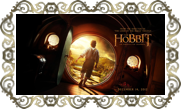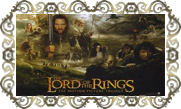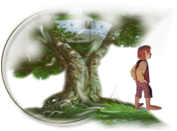

The never ending quest - unlocking J.R.R. Tolkien's inspirational sources (17.12.13 by Pieter Collier) - Comments
| J.R.R. Tolkien created a mythology that has been enjoyed by millions all over the world. It is exciting and strange at the same time to see how Tolkien's works inspire people all over the globe. How his works resonate with people of all religions, languages and cultures. Initially however Tolkien just wanted to create a mythology for England: Also – and here I hope that I shall not sound absurd – I was from early days grieved by the poverty of my own beloved country: it had no stories of its own (bound up with its tongue and soil), not of the quality that I sought, and found (as an ingredient) in legends of other lands. There was Greek, and Celtic, and Romance, Germanic, Scandinavian, and Finnish (which greatly affected me); but nothing in English, save the impoverished chap-book stuff. Of course there was and is all the Arthurian world, but powerful as it is, it is imperfectly naturalized, associated with the soil of Britain but not with English; and does not replace what I felt to be missing - J.R.R. Tolkien, The Letters of J.R.R. Tolkien, p. 144 Houghton Mifflin, 1981). |
But the more successful Tolkien's work got the more people read something into them. It could be religion, culture, histories, folk tales... so many things can be found in Tolkien's works. There are tons of pubs, outdoor places and even cities claiming to have one or another Tolkien connection. There is however a new trend, one that was active for a long time but on a much smaller scale, and that is 'reading something from your own culture in Tolkien's works'. These days many self published authors try to sell us books that try to unlock hidden inspirational sources in Tolkien's books. One, that I actually like a lot and find has very good arguments, finds connections between The Lord of the Rings and Ethiopia: The Real Middle-earth, Discovering the Origin of The Lord of the Rings. Other books are being released constantly. It is impossible to catch up and buy them all, and in the end you always think... oh, yet another person reading something into The Lord of the Rings. On the other hand there might be an underlying cause for the existence of these books. Tolkien said the writing of his books were caused by linguistic invention. What if, and now this is getting very philosophical, Tolkien managed to tap into a massive unknown language pot and put down a history that flows so naturally that is indeed does resonate with many different cultures. Just because languages, cultures and societies tend to have evolved in a similar fashion over different time periods. Words there for can have connections, many people can in fact read into the books things that sound absolutely logic, because Tolkien applied a universal logic to his works: the natural development of language and a culture to support it.
Here are some striking examples of books that just came out. Send over some review copies and I'll read them (write about them) or send over reviews... I'm ready to learn if any of the following books is convincing or just another book to add on the shelf.
Tolkien in Pawneeland: The Secret Sources of Middle-earth
Creating the mythic world of Middle-earth, J.R.R. Tolkien drew inspiration from well-known Northern European traditional literatures. But Tolkien in Pawneeland points to an obscure book never mentioned by Tolkien – a book unknown to lovers of Middle-earth. Comparison of textual elements shows that Tolkien drew inspiration from a 1904 book,Traditions of the Skidi Pawnee. He used this material to invent his creation story and to colorize such characters as Ungoliant, Tom Bombadil, hobbits, Gollum, Gandalf, stone-giants, Beorn, and Smaug. This unexpected journey into a hidden story suggests that Pawnee traditional history served as one of JRR Tolkien’s most important sources for the making of Middle-earth. This secret means that actual historical narratives lay at the foundations of Tolkien’s fictional tales, and Tolkien’s mythmaking has given rise to a truly global mythology.
| Title: Tolkien in Pawneeland: The Secret Sources of Middle-earthPublishers: CreateSpace Independent Publishing PlatformAuthor: Roger Echo-Hawk Publication Date: 4 Dec 2013Type: paperback, 234 pagesISBN-10: 1494333414ISBN-13: 978-1494333416 |
The Guardians of the Fallen Kingdom: Serbia's Great Drama in J.R.R. Tolkien's "The Lord of the Rings"
Thus, in words composed by a host of nameless bards, the songs of Serbia carry on the nation's story, and every Serb feels himself an actor in a great drama that is being played out across the centuries. He continues the work of his forefathers. He avenges their sufferings. But he also works for the future. He builds the framework of an age to come. He is a living link in one great chain that stretches backward far into the past and reaches forward to the generations who shall see Serbia great and free. It is more than obvious that Sam Gamgee was thinking in much the same way, in the moment he realized that he and Frodo were in the same story as the heroes of old stories and songs. He then said: Why, to think of it, we’re in the same tale still! It’s going on. – Then he asked: – Don’t the great tales never end? Frodo answered on his question: No, they never end as tales. But the people in them come and go when their part’s ended. Our part will end later... or sooner. By writing this dialogue between Frodo and Sam, Tolkien was more than clear. In addition to the ongoing Great War of the Ring, the Hobbits consider themselves participants in the great tale that stretches far into the past, a story that is transmitted orally from generation to generation through folk legends, myths and songs, without breaking it...
J.R.R. Tolkien was trying to learn Serbian language in order to read Serbian epic poems in the original. These were the poems about great heroes from the Serbian past (Czar Lazar, King Marko, Karageorge...), and great battles that changed the course of Serbian history (Kosovo battle, battle of the Misar...).
There is no evidence that J.R.R. Tolkien was inspired by the heroes and battles from the Serbian history and epic poetry while writing his epic trilogy. But when you open the pages of this book you will realize they are not needed. Serbian history and epic poetry are fully within the fantasy world of "The Lord of the Rings".
| Title: The Guardians of the Fallen Kingdom: Serbia's Great Drama in J.R.R. Tolkien's "The Lord of the Rings"Publishers: CreateSpace Independent Publishing PlatformAuthor: Bojan MedicPublication Date: 20 Nov 2013Type: paperback, 190 pagesISBN-10: 1494230852 ISBN-13: 978-1494230852 |
Spread the news about this J.R.R. Tolkien article:
Read more http://feedproxy.google.com/~r/TolkienLibrary/~3/hbn7cV4YK50/1135-unlocking-tolkien-inspirations.php














